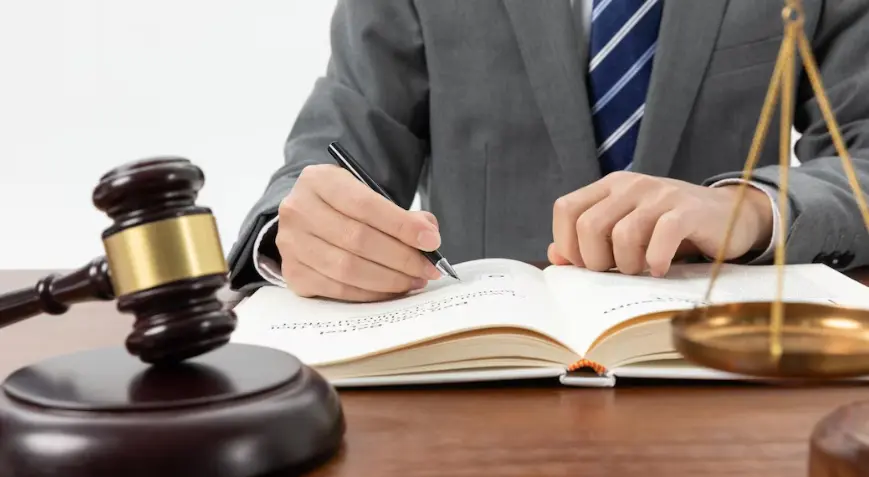You’re driving home after a night out with friends. You feel fine, maybe just a little tired. Suddenly, flashing blue and red lights appear in your rearview mirror. A few minutes later, you’re standing on the side of the road, being told you’re under arrest for Operating Under the Influence (OUI).
An OUI charge can be overwhelming, especially if you’ve never faced legal trouble before. You might be asking yourself: Will I lose my license? Am I going to jail?
This guide will walk you through the essential steps to take after an OUI charge, so you can protect your future.
Step 1: Stay Calm and Know Your Rights
First things first: don’t panic. An arrest doesn’t automatically mean a conviction. You have rights, options, and legal defenses.
Just know that the way you handle the initial interaction with law enforcement can impact your case and its outcome.
So, what should you do when an officer pulls you over?
- Be polite but cautious. It’s normal to feel frustrated when you’re wrongfully charged, but getting angry or argumentative will only make things worse.
- You have the right to remain silent. Other than showing your license and giving your name, you’re not obligated to answer police questions. Also, saying too much might hurt your case later.
- You might be allowed to refuse a field sobriety test. In some states, you have the right to decline roadside tests without immediate legal penalties. However, refusing a breathalyzer test after an arrest may lead to an automatic license suspension.
- Ask for an attorney immediately. Do not answer any further questions until you’ve spoken to an OUI lawyer.
Step 2: Understand the Charges Against You
OUI, DUI (Driving Under the Influence), and DWI (Driving While Intoxicated) are all similar offenses, but different states use different terminology.
In states like Massachusetts and Maine, the term “OUI” is commonly used.
An OUI charge typically means one of the two things:
- Your Blood Alcohol Concentration (BAC) was 0.08% or higher (or lower if you’re a commercial driver or underage).
- You appeared impaired by alcohol or drugs, even if your BAC was below the legal limit.
The consequences of an OUI charge, if you’re convicted and found guilty, can be severe. It can affect everything from your driver’s license to your job opportunities.
Step 3: Know the Potential Consequences
The penalties for an OUI conviction vary based on whether it’s your first offense or if you have prior convictions.
Here’s a general breakdown:
- If it’s your first OUI offense, your license might be suspended for 6 months to a year, with a fine between $500 to $5,000 and jail time of up to 2.5 years. Other penalties include an alcohol education program, which may shorten the suspension period.
- If it’s your second OUI charge, your license can be suspended for 2 years, with a fine between $600 to $10,000 and jail time of 30 days to 2.5 years. Other penalties include a mandatory ignition interlock device.
- If it’s your third OUI, your license will be suspended for 8 years, with a fine between $1,000 to $15,000 and jail time of 150 days to 5 years. Other penalties include felony charges and vehicle confiscation.
A conviction also affects your employment, travel opportunities, and ability to get certain professional licenses. These charges can extend to a lifetime if you’ve been found guilty of multiple OUI charges before.
Step 4: Contact an Experienced Lawyer
The biggest mistake people make after being arrested on the suspicion of OUI is waiting too long to get legal help. You might think, “Oh, I’ll just explain my side to the judge,” but that’s not how the legal system works.
Prosecutors will do everything they can to convict you. So, you need a skilled lawyer on your side.
A lawyer who is experienced with defending OUI charges can:
- Analyze the evidence and look for procedural mistakes by the police.
- Challenge the breathalyzer or field sobriety test results. Sometimes, machines malfunction, and the tests aren’t always reliable.
- Negotiate for lesser charges, or even call for a case dismissal.
- Help you avoid jail time by recommending alternative sentencing options.
Without proper legal defense, you could very quickly end up with maximum penalties – even if your case has flaws that a lawyer could have exploited.
Step 5: Prepare for Court Hearings
After your arrest, you will be given a court date for your arraignment (that is, your first court appearance).
Here’s what will happen:
- The judge will read your charges.
- You will be asked to enter a plea: guilty, not guilty, or no contest.
- If you plead not guilty, a pre-trial hearing will be scheduled.
At this stage, follow your lawyer’s advice. They might suggest fighting the charge, negotiating a plea deal, or enrolling in a diversion program.
Step 6: Understand Your Defense Options
Many people assume that an OUI charge means an automatic conviction, but that’s not always true.
Here are some common defenses your lawyer might use:
- Lack of Probable Cause: If the officer didn’t have a valid reason to pull you over, the case may be dismissed.
- Breathalyzer Inaccuracy: Breathalyzers are machines, so they can’t be foolproof. Some medical conditions, diets, or even mouthwash can affect the readings.
- Unreliability of Field Sobriety Tests: Poor weather, uneven roads, and nervousness can make you fail even if you’re sober.
- Violation of Rights: If the police failed to follow proper procedures, evidence against you could be dismissed.
Every case is different, so your lawyer will pick a defense strategy that best suits your situation.
Step 7: Take Steps to Avoid Future OUI Charges
If this is your first OUI, learn from the experience and take steps to prevent it from happening again.
Here’s what to do:
- Use rideshare services like Uber or Lyft when going out.
- Plan a designated driver before drinking.
- Be cautious with prescription or over-the-counter medications that cause drowsiness.
- If required, complete an alcohol education or treatment program.
An OUI charge doesn’t mean your life is over, but how you handle the situation will affect your future.
The most important thing you can do is stay calm and lawyer up as soon as possible. With the right legal strategy, you can minimize penalties, protect your license, and even get your charges reduced or dismissed.
Don’t wait to seek legal help.




